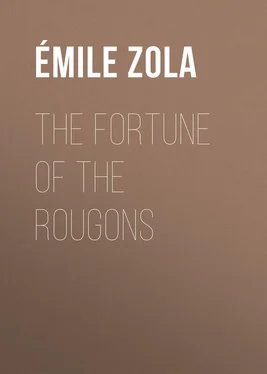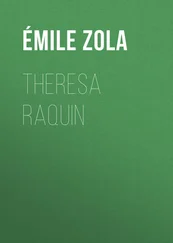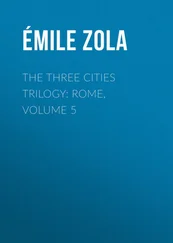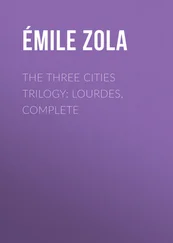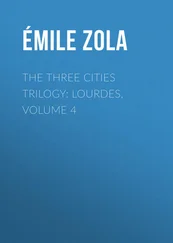Émile Zola - The Fortune of the Rougons
Здесь есть возможность читать онлайн «Émile Zola - The Fortune of the Rougons» — ознакомительный отрывок электронной книги совершенно бесплатно, а после прочтения отрывка купить полную версию. В некоторых случаях можно слушать аудио, скачать через торрент в формате fb2 и присутствует краткое содержание. Жанр: literature_19, foreign_antique, foreign_prose, на английском языке. Описание произведения, (предисловие) а так же отзывы посетителей доступны на портале библиотеки ЛибКат.
- Название:The Fortune of the Rougons
- Автор:
- Жанр:
- Год:неизвестен
- ISBN:нет данных
- Рейтинг книги:3 / 5. Голосов: 1
-
Избранное:Добавить в избранное
- Отзывы:
-
Ваша оценка:
- 60
- 1
- 2
- 3
- 4
- 5
The Fortune of the Rougons: краткое содержание, описание и аннотация
Предлагаем к чтению аннотацию, описание, краткое содержание или предисловие (зависит от того, что написал сам автор книги «The Fortune of the Rougons»). Если вы не нашли необходимую информацию о книге — напишите в комментариях, мы постараемся отыскать её.
The Fortune of the Rougons — читать онлайн ознакомительный отрывок
Ниже представлен текст книги, разбитый по страницам. Система сохранения места последней прочитанной страницы, позволяет с удобством читать онлайн бесплатно книгу «The Fortune of the Rougons», без необходимости каждый раз заново искать на чём Вы остановились. Поставьте закладку, и сможете в любой момент перейти на страницу, на которой закончили чтение.
Интервал:
Закладка:
The name Rougon-Macquart has to me always suggested that splendid and amusing type of the cynical rogue, Robert Macaire. But, of course, both Rougon and Macquart are genuine French names and not inventions. Indeed, several years ago I came by chance upon them both, in an old French deed which I was examining at the Bibliotheque Nationale in Paris. I there found mention of a Rougon family and a Macquart family dwelling virtually side by side in the same village. This, however, was in Champagne, not in Provence. Both families farmed vineyards for a once famous abbey in the vicinity of Epernay, early in the seventeenth century. To me, personally, this trivial discovery meant a great deal. It somehow aroused my interest in M. Zola and his works. Of the latter I had then only glanced through two or three volumes. With M. Zola himself I was absolutely unacquainted. However, I took the liberty to inform him of my little discovery; and afterwards I read all the books that he had published. Now, as it is fairly well known, I have given the greater part of my time, for several years past, to the task of familiarising English readers with his writings. An old deed, a chance glance, followed by the great friendship of my life and years of patient labour. If I mention this matter, it is solely with the object of endorsing the truth of the saying that the most insignificant incidents frequently influence and even shape our careers.
But I must come back to “The Fortune of the Rougons.” It has, as I have said, its satirical and humorous side; but it also contains a strong element of pathos. The idyll of Miette and Silvere is a very touching one, and quite in accord with the conditions of life prevailing in Provence at the period M. Zola selects for his narrative. Miette is a frank child of nature; Silvere, her lover, in certain respects foreshadows, a quarter of a century in advance, the Abbe Pierre Fromont of “Lourdes,” “Rome,” and “Paris.” The environment differs, of course, but germs of the same nature may readily be detected in both characters. As for the other personages of M. Zola’s book – on the one hand, Aunt Dide, Pierre Rougon, his wife, Felicite, and their sons Eugene, Aristide and Pascal, and, on the other, Macquart, his daughter Gervaise of “L’Assommoir,” and his son Jean of “La Terre” and “La Debacle,” together with the members of the Mouret branch of the ravenous, neurotic, duplex family – these are analysed or sketched in a way which renders their subsequent careers, as related in other volumes of the series, thoroughly consistent with their origin and their up-bringing. I venture to asset that, although it is possible to read individual volumes of the Rougon-Macquart series while neglecting others, nobody can really understand any one of these books unless he makes himself acquainted with the alpha and the omega of the edifice, that is, “The Fortune of the Rougons” and “Dr. Pascal.”
With regard to the present English translation, it is based on one made for my father several years ago. But to convey M. Zola’s meaning more accurately I have found it necessary to alter, on an average, at least one sentence out of every three. Thus, though I only claim to edit the volume, it is, to all intents and purposes, quite a new English version of M. Zola’s work.
E. A. V. MERTON, SURREY: August, 1898.
I wish to explain how a family, a small group of human beings, conducts itself in a given social system after blossoming forth and giving birth to ten or twenty members, who, though they may appear, at the first glance, profoundly dissimilar one from the other, are, as analysis demonstrates, most closely linked together from the point of view of affinity. Heredity, like gravity, has its laws.
By resolving the duplex question of temperament and environment, I shall endeavour to discover and follow the thread of connection which leads mathematically from one man to another. And when I have possession of every thread, and hold a complete social group in my hands, I shall show this group at work, participating in an historical period; I shall depict it in action, with all its varied energies, and I shall analyse both the will power of each member, and the general tendency of the whole.
The great characteristic of the Rougon-Macquarts, the group or family which I propose to study, is their ravenous appetite, the great outburst of our age which rushes upon enjoyment. Physiologically the Rougon-Macquarts represent the slow succession of accidents pertaining to the nerves or the blood, which befall a race after the first organic lesion, and, according to environment, determine in each individual member of the race those feelings, desires and passions – briefly, all the natural and instinctive manifestations peculiar to humanity – whose outcome assumes the conventional name of virtue or vice. Historically the Rougon-Macquarts proceed from the masses, radiate throughout the whole of contemporary society, and ascend to all sorts of positions by the force of that impulsion of essentially modern origin, which sets the lower classes marching through the social system. And thus the dramas of their individual lives recount the story of the Second Empire, from the ambuscade of the Coup d’Etat to the treachery of Sedan.
For three years I had been collecting the necessary documents for this long work, and the present volume was even written, when the fall of the Bonapartes, which I needed artistically, and with, as if by fate, I ever found at the end of the drama, without daring to hope that it would prove so near at hand, suddenly occurred and furnished me with the terrible but necessary denouement for my work. My scheme is, at this date, completed; the circle in which my characters will revolve is perfected; and my work becomes a picture of a departed reign, of a strange period of human madness and shame.
This work, which will comprise several episodes, is therefore, in my mind, the natural and social history of a family under the Second Empire. And the first episode, here called “The Fortune of the Rougons,” should scientifically be entitled “The Origin.”
EMILE ZOLA PARIS, July 1, 1871.
CHAPTER I
On quitting Plassans by the Rome Gate, on the southern side of the town, you will find, on the right side of the road to Nice, and a little way past the first suburban houses, a plot of land locally known as the Aire Saint-Mittre.
This Aire Saint-Mittre is of oblong shape and on a level with the footpath of the adjacent road, from which it is separated by a strip of trodden grass. A narrow blind alley fringed with a row of hovels borders it on the right; while on the left, and at the further end, it is closed in by bits of wall overgrown with moss, above which can be seen the top branches of the mulberry-trees of the Jas-Meiffren – an extensive property with an entrance lower down the road. Enclosed upon three sides, the Aire Saint-Mittre leads nowhere, and is only crossed by people out for a stroll.
In former times it was a cemetery under the patronage of Saint-Mittre, a greatly honoured Provencal saint; and in 1851 the old people of Plassans could still remember having seen the wall of the cemetery standing, although the place itself had been closed for years. The soil had been so glutted with corpses that it had been found necessary to open a new burial-ground at the other end of town. Then the old abandoned cemetery had been gradually purified by the dark thick-set vegetation which had sprouted over it every spring. The rich soil, in which the gravediggers could no longer delve without turning up some human remains, was possessed of wondrous fertility. The tall weeds overtopped the walls after the May rains and the June sunshine so as to be visible from the high road; while inside, the place presented the appearance of a deep, dark green sea studded with large blossoms of singular brilliancy. Beneath one’s feet amidst the close-set stalks one could feel that the damp soil reeked and bubbled with sap.
Читать дальшеИнтервал:
Закладка:
Похожие книги на «The Fortune of the Rougons»
Представляем Вашему вниманию похожие книги на «The Fortune of the Rougons» списком для выбора. Мы отобрали схожую по названию и смыслу литературу в надежде предоставить читателям больше вариантов отыскать новые, интересные, ещё непрочитанные произведения.
Обсуждение, отзывы о книге «The Fortune of the Rougons» и просто собственные мнения читателей. Оставьте ваши комментарии, напишите, что Вы думаете о произведении, его смысле или главных героях. Укажите что конкретно понравилось, а что нет, и почему Вы так считаете.
